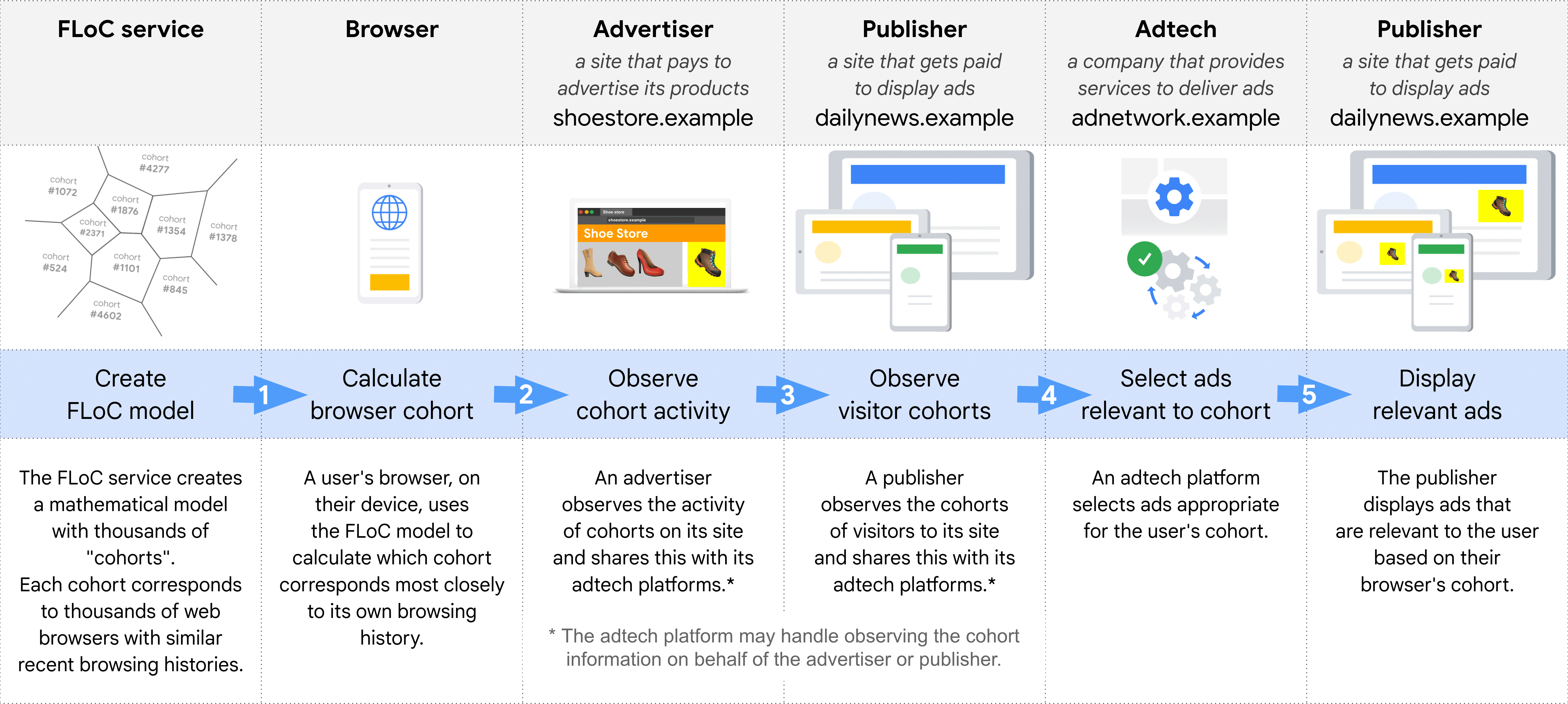
Getty Images
Google made an announcement today: it will not do something it has been thinking and tinkering with for some time.
Most people who just use the Chrome browser, without developing for it or trying to serve ads to it, don’t know what “A New Path for the Privacy Sandbox on the Web” might mean. In short, Google had a “path,” first announced in January 2020, to disable third-party (i.e. tracking) cookies in the most widely used browser on Earth, bringing it in line with Safari, Firefox, and many other browsers. Google has offered several alternatives to cookies that follow you from page to page, constantly offering you that space heater you looked at three days ago. Each of these alternatives has met varying degrees of resistance from privacy and open web advocates, trade regulators, and the advertising industry.
So, rather than disabling third-party cookies by default and implementing new solutions within the Privacy Sandbox, Chrome will “introduce a new experience” that will allow users to choose their tracking preferences when they update or use Chrome for the first time. Google will also continue to work on its Privacy Sandbox APIs, but in a way that recognizes “the impact on publishers, advertisers, and everyone involved in online advertising.” Google also made sure to mention that it is “discussing this new path with regulators.”
Why now? What does this really mean? Let’s look back at more than four and a half years of Google’s efforts to replace third-party cookies without jeopardizing its position as the world’s largest advertising provider.
2017–2022: FLoC or “What if machines tracked you, not cookies?”
Google’s big moves to shut down its operations likely began at Apple headquarters. Its operating system updates in the fall of 2017 implemented a 24-hour limit on ad-targeting cookies in Safari, the default browser on Macs and iOS devices. A “Coalition of Leading Advertising Trade Associations” issued a strongly worded letter opposing the change, saying it would “drive a wedge between brands and their customers” and make advertising “more generic and less timely and useful.”
By the summer of 2019, Firefox was ready to block tracking cookies outright by default. Google, which makes most of its revenue from online advertising, has made a different, broader argument against ditching third-party cookies. To paraphrase: Trackers will track, and if we don’t give them a proper way to do so, they’ll do so maliciously by fingerprinting browsers based on version numbers, fonts, screen sizes, and other identifiers. Google has said it has a machine learning system that can tell when it’s being used. GOOD to share your browsing habits. For example:
New technologies like Federated Learning show that it’s possible for your browser to avoid revealing that you’re a member of a group that likes Beyoncé and sleeveless vests until it’s sure that group contains thousands of other people.
In January 2020, Google changed its pitch from “with” to “instead” of third-party cookies. Justin Schuh, Chrome’s engineering director, wrote “Building a more private web: A path to third-party cookie obsolescence,” suggesting that broad support for Chrome’s privacy sandbox tools would allow for a move away from third-party cookies altogether. Privacy advocate Ben Adida called the move “a major step forward” and “a big deal.” Feedback from the W3C and other stakeholders, Schuh wrote at the time, “gives us confidence that solutions in this space can work.”

Google’s explanatory graphic for FLoC, or Federated Learning of Cohorts.
As Google developed its replacement for third-party cookies, the path became more complicated and the space more perilous. The Electronic Frontier Foundation called Google’s FLoC, or “Federated Learning of Cohorts,” which would allow Chrome to automatically learn your profile for sites and ads, “a terrible idea.” The EFF was joined by Mozilla, Apple, WordPress, DuckDuckGo, and many browsers based on Chrome’s core Chromium codebase in opposing or not committing to FLoC. Google pushed back testing of FLOC until late 2022 and the removal of third-party cookies (and thus implementation of FLoC) until mid-2023.
As of early 2022, FLoC had no clear path forward. Google opted for a Topics API, which would give users a bit more control over which topics (“Rock Music,” “Auto & Vehicles”) would be passed to potential advertisers. This would certainly be an improvement over third-party cookies, which are largely impenetrable by name and offer the user only one privacy policy: block them, or delete them all and lose many connections.



